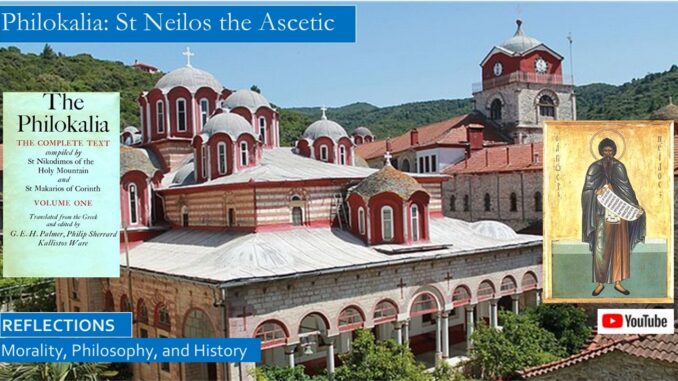
Today we will learn and reflect on the writings in the Philokalia by St Neilos the Ascetic, also known as St Nilus of Sinai.
What does Athens have to do with Jerusalem? Can Christians study philosophy?
When you are devout, how can you be sure that your devotions are not merely for display? How do you know your devotion is genuine?
Why are we so distracted from living a godly life? Why do the years whittle away at our devotion? How can possessions endanger our soul?
What are the spiritual dangers for teachers and their disciples?
How can laymen apply the advice given meant for monks by writers in the Philokalia to living their lives in an imperfect world?
YouTube Script with Book Links:
https://www.slideshare.net/BruceStrom1/st-neilos-the-ascetic-from-the-philokalia
YouTube video for this blog: https://youtu.be/-CoyNNgfza0
SHORT BIOGRAPHY OF ST NEILOS THE ASCETIC
St Neilos was an abbot in a monastery near Ankara, now Turkey, early in the fifth century, perhaps he was a disciple of St John Chrysostom, he definitely has his sharp tongue. He is the earliest writer to mention the Jesus prayer in his other works.[1] Dr Wikipedia definitely affirms his connection with St Chrysostom, he vigorously protested his persecution in a letter to the emperor. Later he and his son joined a monastery in Palestine.[2]
ST NEILOS’ CRITICISMS OF GREEK AND JEWISH PHILOSOPHY
St Neilos opens his Ascetic Discourses: “Many Greeks and not a few Jews attempted to philosophize; but only the disciples of Christ have pursued true wisdom, because they alone have Wisdom as their teacher, showing them by His example the way of life they should follow.”
This reminds us of the question posed by Tertullian several centuries earlier, What does Athens have to do with Jerusalem? While both criticize these pagan traditions, the stoic philosophers had a deep influence on Eastern Christianity, the opening work of the Greek Philokalia was relegated to the Appendix by its English translators because they suspected that the author was a Stoic Philosopher, since it contained few Biblical references.
The Stoic Philosopher “St Anthony” in the Appendix of the Philokalia, On the Character of Men and the Virtuous Life
http://www.seekingvirtueandwisdom.com/philokalia-on-the-character-of-men-and-the-virtuous-life/
https://youtu.be/UWqhOMkieqQ
St Neilos continues, “For the Greeks, like actors on a stage, put on false masks; they were philosophers in name alone, but lacked true philosophy. They displayed their philosophic calling by their cloak, beard and staff, but indulged the body and kept their desires as mistresses. They were slaves to gluttony and lust, accepting this as something natural. They were subject to anger and excited by glory, and they gulped down rich food like dogs.”
St Neilos explicitly mocks the Cynic philosopher Diogenes of Sinope: “The only object was to show off, and they endured hardships simply to gain cheap applause. Moreover, what can be more stupid than to keep silent continually, live on vegetables, cover oneself with ragged garments of hair and spend one’s days in a barrel, if one expects no recompense after death?”
Diogenes of Sinope was a student of the founder of the Cynics, Antisthenes, who in turn was a student of Socrates, and he was one of the dinner guests who spoke in Xenophon’s Symposium.
Xenophon and Plato, Socratic Dialogue, Symposium, Romantic and Carnal Love, Part 1
https://seekingvirtueandwisdom.com/xenophon-and-plato-socratic-dialogue-symposium-romantic-and-carnal-love-part-1/
https://youtu.be/OIe5pn2S1Ls
Diogenes of Sinope was perhaps the original hippie, challenging social conventions, not only did he live in a large barrel in the Athenian market; he also masturbated in public. But he also provided an ascetic example that may have influenced the later monastics, and his sayings contributed to the Athenian culture that in turn influenced Christianity.
Greek Cynic Philosophers
http://www.seekingvirtueandwisdom.com/diogenes-and-the-greek-cynic-philosophers/
https://youtu.be/zAAal5p8AX8
Diogenes’ student was Crates, whose student in turn was Zeno of Citium, the founder of the Greek stoic philosophers. Although Seneca mentions studying his works, only fragments of the works of the Greek stoic philosophers survive. Why were they lost to history? Perhaps Seneca’s restatement of stoicism was far superior to the Greek original. Or perhaps Zeno’s writings offended the Christian scribes, who declined to copy them for posterity. The ancient biographer Diogenes of Laertius, who preserved most of the fragments that have survived of the Greek Cynic and Stoic philosophers, stated that the libertine actions and teachings of Zeno and later Greek stoics offended many in Athens.
Zeno: First Greek Stoic Philosopher
http://www.seekingvirtueandwisdom.com/diogenese-on-the-greek-stoic-zeno-of-citium/
https://youtu.be/STxpGlkFyvs
We do wholeheartedly agree with St Neilos’ teaching, “Philosophy is a state of moral integrity combined with a doctrine of true knowledge concerning reality. Both Jews and Greeks fell short of this,” and he also has specific railings against Jews, “for they rejected the Wisdom that is from heaven and tried to philosophize without Christ, who alone has revealed the true philosophy in both His life and His teaching.” [3]
We believe that you should reflect on both Stoic philosophy and the Jewish rabbinical writings, as both Judaism and Stoicism prepared the world for Christ. Christian monastic teaching enriches Stoicism. Likewise, studying the teachings of the ancient and medieval Jewish rabbis can enrich your Christianity.
Should St Neilos have compared the Greek philosophers to dogs gulping down rich food? Christians still felt insecure and embattled, the reign of the Emperor Julian the Apostate was in living memory, many feared that a subsequent emperor might mainstream paganism once again.
The modern experience differs, World War II promoted democracy while discrediting the fascist regimes, many which supported Catholicism. Today’s global economy and migration means that many of us have business associates or friends or relatives who have differing religious faiths and philosophies. Definitely denigrating other religious traditions is spiritual dangerous, the Vatican II decrees teach us that we should be respectful of other religious traditions.
Vatican II Decree on Freedom of Religion, Embracing Democracy, Rejecting Fascism
http://www.seekingvirtueandwisdom.com/vatican-ii-decree-on-freedom-of-religion-embracing-democracy-rejecting-fascism/
Vatican II on Freedom of Religion, Dignitatis Humanae, and Pacem In Terris by Pope John XXIII
https://youtu.be/i_zGeTW9QMI
FALSE ASCETICISM MERELY FOR SHOW
St Neilos then reflects on how Christians should avoid these spiritual traps that so many Greeks and Jews succumbed to. St Neilos teaches us that the apostles “adopted a harsh and strenuous way of life, facing every kind of adversity, afflicted, tormented, harassed, naked, lacking even necessities; and finally, they met death boldly, imitating their Teacher faithfully.”
After Emperor Constantine favored Christianity, ending the persecutions, Christians could only challenge their faith through monasticism. St Neilos teaches us that “although all Christians should have modeled their own life on this image, most of them either lacked the will to do so or else made only feeble efforts.”
The ancient world was a different world, St Neilos speculates that many come “to the monastic life because of some pressure, not realizing what is involved; so, they regard it merely as a way of making a living.”
We ponder this also in our reflection on Dark Night of the Soul by St John of the Cross, where his monks rebelled against his insistence on strict monastic observance of diet and prayers. In the ancient and medieval worlds, monasteries played the same role that the military does today, it was often the default career for young men who did not have a clear career path, and the monasteries were much larger than they are today. St Neilos even says that many ancient citizens were critical of the low standard of monastics in their day.
St John of the Cross, Dark Night of the Soul, Seven Capital Sins and Best Type of Close Friend
https://seekingvirtueandwisdom.com/st-john-of-the-cross-dark-night-of-the-soul-seven-capital-sins-and-best-type-of-close-friend/
https://youtu.be/DgL7Y5pIFAU
St Neilos notes that the monastic movement began with great promise, “envy, malice, arrogance and haughtiness were banished, along with all that leads to discord.” But as the decades passed, “this strict and angelic way of life suffered the fate of a portrait many times recopied by careless hands, until all likeness to the original had been lost.”
St Neilos speaks of his fellow monks, “We no longer pursue plainness and simplicity of life. We no longer value stillness, which helps to free us from past defilement, but prefer a whole host of things which distract us uselessly from our true goal. Rivalry over material possessions has made us forget the counsel of the Lord, who urged us to take no thought for earthly things, but to seek only the kingdom of heaven.”
St Neilos tells his fellow monks, “We distinguish ourselves merely by the habit we wear, not by our way of life. We reject all ascetic effort, but madly desire a reputation for asceticism. We have debased the truth into play acting.” [4] How different is this from Christians of today?
St Neilos contrasts the holy men “who live for the soul alone, turning away from the body and its wants,” the holy men who have no need to flatter the wealthy because they live simply, to those of us who, “instead of courageously struggling against our difficulties, come fawning to the wealthy, like puppies wagging their tails in the hope of being tossed a bare bone or some crumbs. To get what we want, we call them benefactors and protectors of Christians, attributing every virtue to them, even though they may be utterly wicked.”
HOW POSSESSIONS CAN ENDANGER OUR SOUL
St Neilos reminds us how Jesus exhorts us in the Sermon on the Mount: “Do not resist one who is evil. But if anyone strikes you on the right cheek, turn to him the other also; and if anyone would sue you and take your coat, let him have your cloak as well; and if anyone forces you to go one mile, go with him two miles.”[5]
Can Christians live up to this ideal? Should Christians always live up to this ideal? Does Jesus want us to live the life of a wussy Wookie, a walking carpet? If we have a family, we are obligated to provide for them, and since we do not want to be a burden on society, we cannot allow someone to defraud us of much of our assets without complaint. But we must not allow our possessions to possess us.
St Nelios teaches us, “Possessions arouse feelings of jealousy against their owners,” “divide families, and make friends hate one another. Possessions have no place in the life to come, and even in this present life have no great use. Why, then, do we abandon the service of God and devote ourselves entirely to empty trivialities? For it is God who supplies us with all we need.”
St Neilos asks us, “Is it ever right to engage in disputes in order to protect our property?” Should we not do as Jesus bids us, to also give our cloak to those who take our coat, to walk two miles when we are forced to walk one, to turn the other cheek? How should we act when our neighbor steals our treasure, like when Jezebel had Naboth killed so she could steal his vineyard for her husband Ahab? St Neilos asks us, “Must we lose all self-control in such situations, and become worse than madmen?” “Why do we try to make other people’s property our own, weighing ourselves down with material fetters?”
We must also be thankful to God for his gift for our abilities that enable us to earn a good living. St Neilos notes that Job’s greatest sin “was to raise his hand to his mouth and kiss it.” Likewise, “many people kiss their hands, saying it is their hands which bring them prosperity.”
St Neilos warns us, “Through our anxiety about worldly things, we hinder the soul from enjoying divine blessings, and we bestow on the flesh greater care and comfort than are good for it.”
WHAT ARE THE LESSONS OF ELIJAH AND ELISHA?
St Nelios teaches us that “Elijah and Elisha became what they were through their courage, perseverance and indifference to the things of this life. They practiced frugality; by being content with little, they reached a state in which they wanted nothing, and so came to resemble the bodiless angels.” Thus, “they became stronger than the greatest of earthly rulers; they speak more boldly to crowned monarchs than any king does to his own subjects.”
These prophets displayed many signs, blinded an opposing army, fire was sent down from heaven to consume offerings on altars, a leper was healed, a young daughter was resuscitated. St Neilos teaches us that “these holy men achieved such things because they had resolved to live for the soul alone, turning away from the body and its wants. The fact of needing nothing made them superior to all men. They chose to forsake the body and to free themselves from life in the flesh, rather than to betray the cause of holiness and, because of their bodily needs, to flatter the wealthy. But, as for us, when we lack something, instead of struggling courageously against our difficulties, we come fawning to the rich, like puppies wagging their tails in the hope of being tossed a bare bone or some crumbs.”[6]
SPIRITUAL DANGERS FOR TEACHERS AND DISCIPLES
St Neilos repeats a warning of Jesus from the Sermon on the Mount: “But woe to you, scribes and Pharisees, hypocrites! because you shut the kingdom of heaven against men; for you neither enter yourselves, nor allow those who would enter to go in. Woe to you, scribes and Pharisees, hypocrites! For you traverse sea and land to make a single proselyte, and when he becomes a proselyte, you make him twice as much a child of hell as yourselves.”[7]
Who are the Pharisees?
Here the Pharisees are anyone who seeks to be a spiritual teacher. St Neilos teaches us that “in reality, by rebuking the Pharisees in this way, He was warning those who in the future would make the same mistake; so that, from fear of His condemnation they would restrain their improper desire for human glory.”
When we volunteer to serve in a ministry, St Neilos teaches us that “first, we must struggle against our own passions, watching and keeping in mind the course of our spiritual battle; and then on the basis of personal experience we can advise others about this warfare, and render victory easier for them by describing the tactics beforehand.”
St Neilos says that some self-appointed teachers with little experience seek glory in how many disciples they can attract, as today television and YouTube preachers often seek as large an audience as possible. They become arrogant, even giving orders, “not for the benefit of their disciples, but to promote their own pleasure.”
On the other hand, those uniquely qualified to be teachers, as St Neilos states, “who perceive in themselves some fruit of virtue and feel its benefit, refuse to assume leadership even when pressed by others, because they prefer this benefit to receiving honor from men.”
What are the responsibilities of the teachers and their disciples? St Neilos teaches us that “the teacher’s ineptitude destroys the disciples, and the disciples’ negligence endangers the teacher, especially when, because of his ineptitude, they grow lazy. For its is the teacher’s duty to notice and correct his disciple’s faults, and it is the disciples’ duty to obey all his instructions. It is a serious and dangerous thing both for them to commit sins and for him to overlook them.”
St Neilos is referring to an Abbott of a monastery who knows all his monks and interacts with them on a daily basis. This close control is spiritually dangerous if a priest tries to supervise his parishioners this closely. But when you confess to a Catholic or Orthodox priest who knows you well, you should be reluctant not to follow their spiritual advice during Confession. You should select a priest whom you respect and feel comfortable in bearing your soul during Confession.
St Neilos reminds us that there are who become clerics for imperfect motives. “Under the influence of self-esteem, a man may perhaps enter the priesthood or the life of monastic perfection; and because many come to him for help, his self-esteem makes him think highly of himself thanks to what he says and does. So, by beguiling him with such thoughts, self-esteem draws him far away from the inner watchfulness that he should possess.”
St Neilos teaches us, “Every shameful thought formed in the mind is a secret idol.” “Virtue is a thing most delicately balanced, and that if neglected it quickly turns into its opposite.” “When an athlete’s body is thrown to the ground, he can easily get up; but in the spiritual warfare it is men’s soul that falls, and then it is very difficult for them to rise once more.”
St Neilos continues, “The Lawgiver, symbolically commanding us to deny entry to sensual pleasure, told us to watch the head of the serpent, because it is watching our heel. Its aim is to bite our heel and so to poison us; whereas our aim is to crush every provocation to sensual pleasure, for when the provocation is crushed, sensuality has little power over us.”[8]
St Augustine teaches us that all Scriptures should be interpreted to further the two-fold Love of God and love of neighbor in our heart, and if a passage appears to violate this two-fold love, then it should be interpreted allegorically. One such verse is a favorite verse of the Church Fathers in the Philokalia where the Jews imagine what it would be like to smash the heads of Babylonian babies against the rocks.
St Nelios teaches us that “the Psalms praise those who do not wait for the passions to grow to full strength but kill them in their infancy:
‘Happy shall he be who takes your little ones
and dashes them against the rock!’”[9]
St Neilos draws spiritual lessons from several Old Testament Bible stories. The first is the story of Lot and his wife. The angels inform them that God will send fire down to destroy the sinful city of Sodom, and that they must flee and not look back.
St Neilos teaches us that “we gain nothing, therefore, by our decision to renounce earthly things if we do not abide by it but continue to be attracted by such things if we do not abide by it but continue to be attracted by such things and allow ourselves to keep thinking about them. By constantly looking back like Lot’s wife towards what we have renounced, turned into a pillar of salt, remaining to this day as an example to the disobedient. She symbolizes the force of habit, which draws us back again after we have tried to make a definitive act of renunciation.”[10]
We reflected on the deceits that dominated the two generations of Jacob and Joseph, and how these deceits corrupted the family and caused much suffering. In one of these deceits Rachel, who may have been resentful of the deceits that her father committed against her husband Jacob, stole the valuable household idols that belonged to her father, denying her theft.
Decalogue: Do Not Slander, Catholic Catechism 2465-2503, and St Thomas Aquinas
https://seekingvirtueandwisdom.com/decalogue-do-not-slander-catholic-catechism-2465-2503-and-st-thomas-aquinas/
https://youtu.be/9RqsWvRZpWw
St Neilos teaches us that “the soul that succumbs to past habits and gives all its attention to material things, which lack true reality, is like Rachel sitting on Laban’s idols; it does not listen to the teaching which would raise it up to higher things, but says like Rachel, ‘I cannot rise up before you, for the custom of women is upon me.’”[11]
St Neilos teaches us that “avarice, anger and dejection are all offshoots of gluttony. For the glutton needs money first of all, so as to satisfy his ever-present desire, even though it never can be satisfied. His anger is inevitably aroused against those who obstruct his acquisition of money, and in turn gives way to dejection when he proves too weak to get his way.” “For those who love pleasure, when deprived of it, grown angry and embittered.” “As well as nursing and feeding the passions, gluttony also destroys everything good.”[12] “How can someone weighed down with wealth wrestle with the demon of avarice?”
St Neilos draws a lesson from the story of Joseph, who was sold into slavery, whose services were rendered to Potiphar, a court official. Potiphar’s wife attempted to seduce Joseph, but he resisted. As background to his telling of this story: in the ancient world, wrestlers wrestle in the nude, men exercise in the nude at the gymnasium. Male nudity was not regarded as offensive in the ancient Greek world.
St Nelios says that “a naked person is hard or even impossible to catch. If Joseph had been naked, the Egyptian woman would not have found anything to seize hold of, for the Scriptures say that ‘she caught him by his garment, saying: Lie with me.’ Now garments are the physical things whereby sensual pleasure seizes hold of us and drags us about; for whoever is encumbered with such things will of necessity be dragged about by them against his will.”[13]
St Nelios continues, “It is difficult for the devil to seize hold of one who has no worldly attachments. But when a man is full of anxiety about material things the intellect, as though covered with dust, loses the agility which detachment confers upon it; and then it is hard for him to escape from the devil’s grip.” “Detachment is the mark of a perfect soul, whereas an imperfect soul is worn down with anxiety about material things.”[14]
CLOSING SPIRITUAL ADVICE FROM ST NEILOS
St Neilos teaches us: “Do not let the purity of your virtue be clouded by thoughts of worldly things: do not let the intensity of your contemplation be disturbed by bodily cares. Then true wisdom will stand revealed in its full beauty and it will no longer be maligned by insolent men because of our shortcomings, or mocked by those who know nothing about it; but it will be praised, if not by men, by the angelic powers and by Christ our Lord.” “From malice men often speak slanderously of what is good; but the tribunal on high gives judgment with impartiality and delivers its verdicts in accordance with the truth.”
St Neilos concludes his Ascetic Discourse with: “We need not worry about men’s opinions, for men can neither reward those who have lived well nor punish those who have lived otherwise. If because of envy or worldly attachment they seek to discredit the way of holiness, they are defaming with deluded blasphemies the life honored by God and the angels. At the time of judgment those who have lived rightly will be rewarded with eternal blessings, not on the basis of public opinion, but in accordance with the true nature of their life.”
Our saint ends this with a short prayer: “May all of us attain these blessings through the grace and love of our Lord Jesus Christ, to whom be glory together with the Father and the Holy Spirit, now and ever and through all the ages. Amen.”[15]
DISCUSSING THE SOURCES
St Neilos the Ascetic is one of the works included in the Philokalia. We also found a book of scholarly essays on the Philokalia. We discuss the sources more in depth in our introductory video on the Philokalia.
The Philokalia, Classics by the Eastern Church Fathers, the Love of the Beautiful
https://seekingvirtueandwisdom.com/introduction-to-the-philokalia-the-love-of-the-beautiful/
https://youtu.be/rKVBhdHWHGI
St John Climacus explores many of the monastic themes that St Neilos discusses, including cultivation of good habits and thoughts, detachment, envy, avarice, anger, dejection, chastity, fasting, moderation, and most important, true, genuine faith, in his Ladder of Divine Ascent.
John Climacus: First Step of the Ladder of Divine Ascent
http://www.seekingvirtueandwisdom.com/st-john-climacus-first-step-on-the-ladder-of-divine-ascent/
https://youtu.be/Fco0W3bt5GA
[1] St Nelios the Ascetic, “Ascetic Discourse,” in the Philokalia, The Complete Text, compiled by St Nikodimos of the Holy Mountain and St Makarios of Corinth, Volume 1, translated and edited by GEH Palmer, Phillip Sherrard, and Kallistos Ware (London: Faber and Faber, 1979), Introduction, p 199.
[2] https://en.wikipedia.org/wiki/Nilus_of_Sinai
[3] St Nelios the Ascetic, “Ascetic Discourse,” in the Philokalia, pp 200-201.
[4] St Nelios the Ascetic, “Ascetic Discourse,” in the Philokalia, pp 201-205.
[5] https://www.biblegateway.com/passage/?search=matthew+5%3A39-41&version=RSVCE
[6] St Nelios the Ascetic, “Ascetic Discourse,” in the Philokalia, pp 206-213.
[7] https://www.biblegateway.com/passage/?search=matthew+23%3A13-15&version=RSVCE
[8] St Nelios the Ascetic, “Ascetic Discourse,” in the Philokalia, pp 216-227.
[9] St Nelios the Ascetic, “Ascetic Discourse,” in the Philokalia, p. 233-and https://www.biblegateway.com/passage/?search=psalms+137%3A9&version=RSVCE
[10] St Nelios the Ascetic, “Ascetic Discourse,” in the Philokalia, p. 236 and https://www.biblegateway.com/passage/?search=genesis+19%3A15-28&version=RSVCE
[11] St Nelios the Ascetic, “Ascetic Discourse,” in the Philokalia, p. 237 and https://www.biblegateway.com/passage/?search=genesis+31%3A22-42&version=RSVCE
[12] St Nelios the Ascetic, “Ascetic Discourse,” in the Philokalia, pp. 237-239.
[13] St Nelios the Ascetic, “Ascetic Discourse,” in the Philokalia, p. 243 and https://www.biblegateway.com/passage/?search=genesis+39%3A6-23&version=RSVCE
[14] St Nelios the Ascetic, “Ascetic Discourse,” in the Philokalia, p. 244.
[15] St Nelios the Ascetic, “Ascetic Discourse,” in the Philokalia, pp. 249-250.

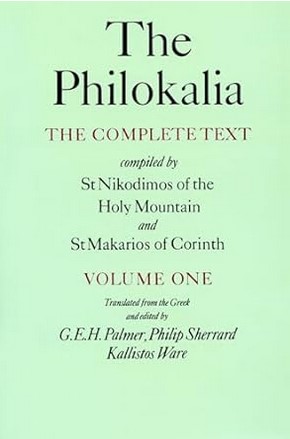
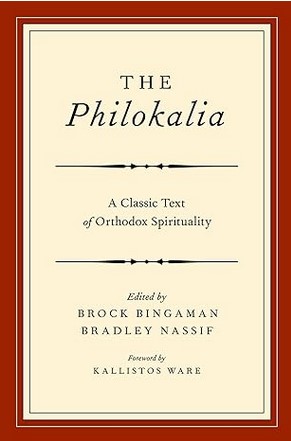

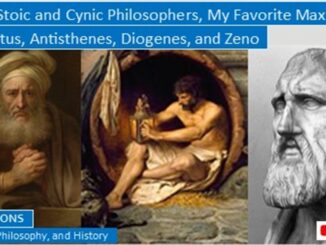
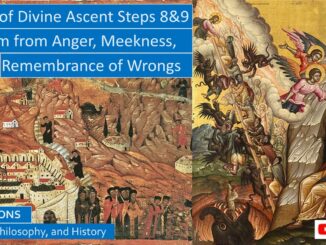
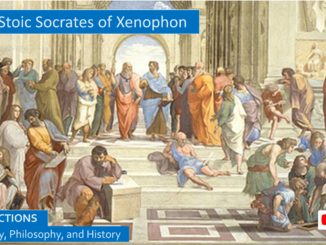
Be the first to comment